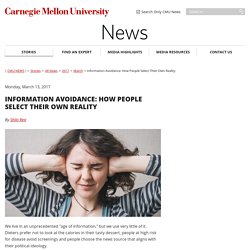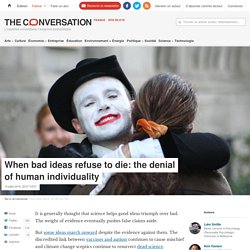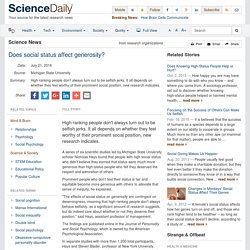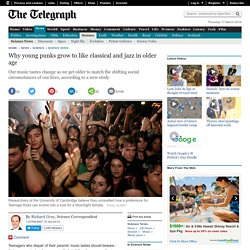

The influential Confucian philosopher you’ve never heard of. A man is hiking in the countryside when he suddenly sees a toddler about to fall into an abandoned well.

What will he do? Many people will instinctively run toward the toddler to save him. However, some people will simply panic, freezing in the moment of crisis. A handful of people might start to move toward the child, but then stop, because they realise that the crumbling old well could collapse under their weight. Their initial impulse to save the child competes with their desire for self-preservation. The fact is that we cannot be entirely sure what a human in this situation will do. This thought experiment was formulated by the ancient Confucian Mengzi, the most influential philosopher in world history whom you have probably never heard of. Although Mengzi was born long after Confucius died, he is referred to as the ‘Second Sage’ because he shaped the form that Confucianism would take for the next two millennia, not just in China, but also in Korea, Japan and Vietnam.
Information Avoidance: How People Select Their Own Reality. Monday, March 13, 2017 By Shilo Rea We live in an unprecedented "age of information," but we use very little of it.

Dieters prefer not to look at the calories in their tasty dessert, people at high risk for disease avoid screenings and people choose the news source that aligns with their political ideology. Drawing on research in economics, psychology and sociology, Carnegie Mellon University's George Loewenstein, Russell Golman and David Hagmann illustrate how people select their own reality by deliberately avoiding information that threatens their happiness and wellbeing. SAGE Journals: Your gateway to world-class journal research. SAGE Journals: Your gateway to world-class journal research. In the age of robots, our schools are teaching children to be redundant. In the future, if you want a job, you must be as unlike a machine as possible: creative, critical and socially skilled.

So why are children being taught to behave like machines? Children learn best when teaching aligns with their natural exuberance, energy and curiosity. So why are they dragooned into rows and made to sit still while they are stuffed with facts? We succeed in adulthood through collaboration. So why is collaboration in tests and exams called cheating?
Governments claim to want to reduce the number of children being excluded from school. The best teachers use their character, creativity and inspiration to trigger children’s instinct to learn. There is, as Graham Brown-Martin explains in his book Learning {Re}imagined, a common reason for these perversities. As far as relevance and utility are concerned, we might as well train children to operate a spinning jenny. SAGE Journals: Your gateway to world-class journal research. NOAM CHOMSKY - The 5 Filters of the Mass Media Machine. Study into who is least afraid of death. Theconversation. It is generally thought that science helps good ideas triumph over bad.

The weight of evidence eventually pushes false claims aside. But some ideas march onward despite the evidence against them. The discredited link between vaccines and autism continues to cause mischief and climate change sceptics continue to resurrect dead science. Why, then, are some bad ideas so hard to kill? A striking example of such a “zombie theory” comes from personality psychology. For almost 50 years, an idea with a vexing immunity to evidence has needled this field. Is personality an illusion? Introduced in the 1960s by American psychologist Walter Mischel, situationism is the idea is that human behaviour results only from the situation in which it occurs and not from the personality of the individual.
Does social status affect generosity? High-ranking people don't always turn out to be selfish jerks.

It all depends on whether they feel worthy of their prominent social position, new research indicates. A series of six scientific studies led by Michigan State University scholar Nicholas Hays found that people with high social status who didn't believe they earned that status were much more generous than high-status people who felt they deserved the respect and admiration of others. Prominent people who don't feel their status is fair and equitable become more generous with others to alleviate that sense of inequity, he explained.
"The effects of social status on generosity are contingent on deservingness, meaning that high-ranking people don't always behave selfishly, as a significant amount of research suggests, but do indeed care about whether or not they deserve their position," said Hays, assistant professor of management. The research project is one of the first of its kind. What is the physical difference in the brain between an objectively intelligent person and an objectively stupid person? : askscience. Why young punks grow to like classical and jazz in older age. This corresponds to a shift in lifestyle to where people are socialising far more in bars, clubs and at parties where uplifting and danceable music tends to be played.

However, the preference for contemporary music plateaus in early middle age and individuals start to like sophisticated music like jazz and classical. The scientists say this marks a shift to a more solitary expression of our intellect, status and greater emotional maturity. They also found that tastes became less pretentious with far more older people liking country, folk and blues music. “There is a tendency for young people to prefer music that their parents cannot stand or find obnoxious, so there must be some developmental changes that take place as we get older,” said Dr Jason Rentfrow, senior lecturer in psychology at the University of Cambridge. “Teenage years are often dominated by the need to establish identity. Perhaps unsurprisingly, the researchers found that people actively changed the music they liked.
Sherlock Holmes. Limitless. Matrix. Motivation. Creativity. Sex. You Lie to Yourself. You Are Controlled. Make a Powerful Argument. Addiction, Depression & Suicide.